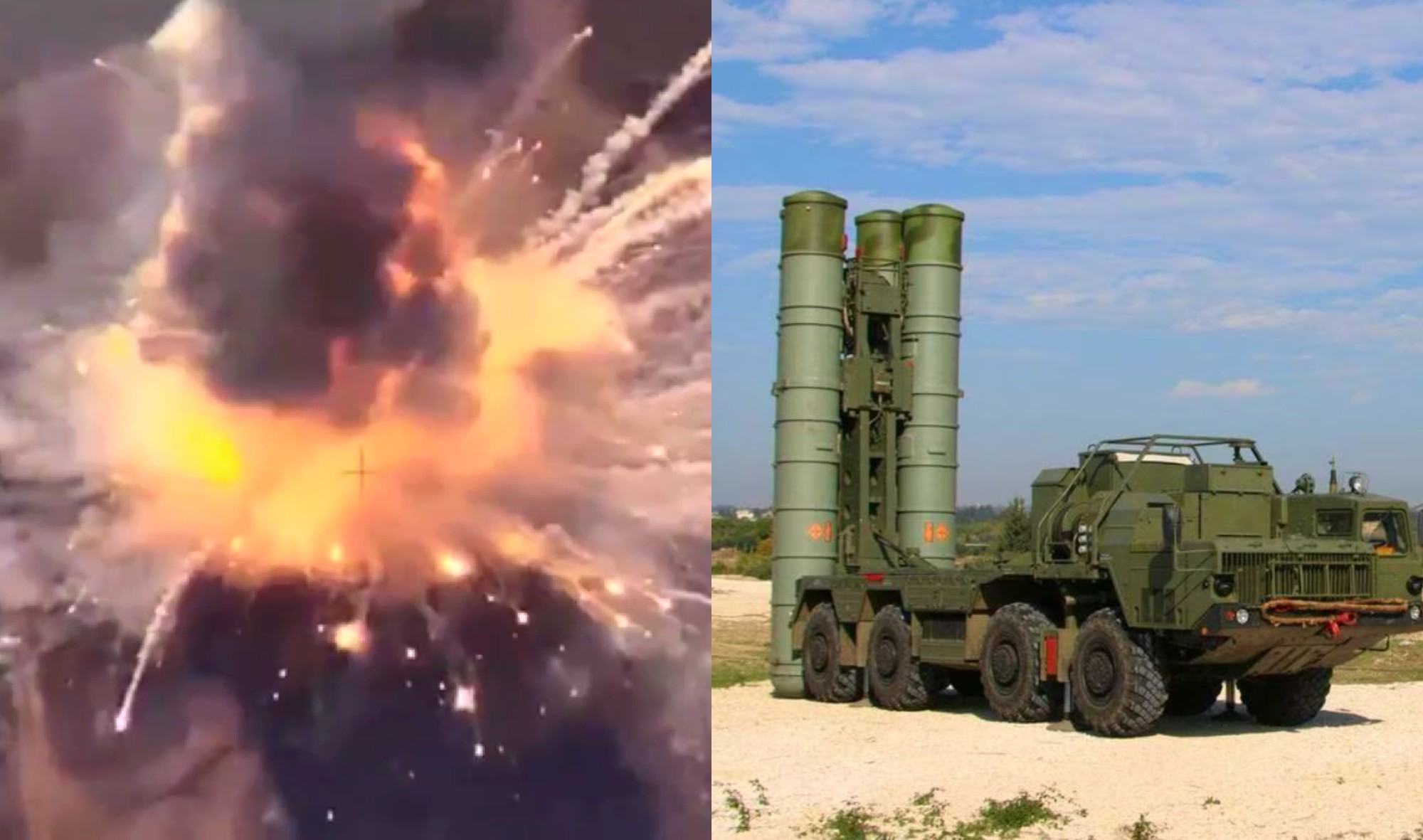The latest intelligence update published by the UK Ministry of Defense (MoD) has stated that Russia might have to reallocate its strategic air defense assets after suffering multiple losses of its long-range S-400 air defense systems.
The update, posted to the official UK MoD account on Platform X, said, “Following last week’s reported losses of several Russian SA-21 long-range Surface to Air Missile (SAM) systems, a new analysis suggests that to maintain coverage over Ukraine, Russia will likely need to reallocate SAMs which are routinely protecting distant parts of Russia.” SA-21 is the Western name for the S-400 system.
In recent weeks, Ukrainian forces have specifically singled out Russia’s advanced and expensive air defense systems. For instance, towards the end of October, reports claimed Ukraine destroyed four S-400 systems, probably using its new weapons: the Army Tactical Missile System (ATACMS) acquired from the United States.
Another spate of attack, this time on the Kerch Strait, was launched in early November. Military experts claim that the Ukrainian Air Force’s innovative strategies to overpower and deflect Russian air defense were demonstrated in these attacks.
This implies that there was a deliberate attempt to take out the S-400 system, which downed multiple Ukrainian aircraft since it was paired with an A-50 Airborne Warning and Control System (AWACS) aircraft, as previously reported by EurAsian Times.
(3/4) Positioned at strategically important locations, as well as along Russia’s borders, removing systems would almost certainly weaken Russia's air defence posture on its peripheries.
— Ministry of Defence 🇬🇧 (@DefenceHQ) November 9, 2023
Striking S-400 is aimed at dislodging Russia from the front lines and disrupting several of its tactical battlefield calculations centered on the sophisticated surface-to-air missile (SAM) system. The Russian S-400 air defense system has a maximum range of 400 kilometers.
The relocation of the air defense systems from the fringes is significant as, according to the UK MoD, “Positioned at strategically important locations, as well as along Russia’s borders, removing systems would almost certainly weaken Russia’s air defense posture on its peripheries.”

“The reallocation of strategic air defense assets would further demonstrate how the Ukraine conflict continues to overextend Russia’s military and strains its ability to retain baseline defenses across its vast area,” the intelligence update concluded. Prioritizing robust, sophisticated, long-range air defense systems has long been emphasized by Russia as a crucial part of its military strategy.
Ukrainian attacks on these cutting-edge anti-aircraft systems have reduced their ability to defend the air and forced them to alter operational deployments, upsetting numerous calculations for the fight. It has also exposed the gaps and deficiencies in the much-vaunted air defense systems.
Russia likely lost at least four long-range Surface-to-Air Missile (SAM) launchers to Ukrainian strikes. Russian media reported on October 26 that three “SA-21 launchers” had been lost in the Luhansk region, and sources in Ukraine claimed that there had been further losses to Russian air defense in Crimea.
The previous British intelligence assessment pointed out how the loss of the S-400s suggested that Russia’s “Integrated Air Defense System continues to struggle against modern precision strike weapons and will likely increase the strain on remaining systems and operators.” Russia might try to replace the destroyed systems with S-400s from other regions, which “will weaken its air defenses in other operational areas.”
The latest British assessment stopped short of predicting the locations inside Russia from where the Russian S-400 air defense systems would be moved to sites closer to the frontline. Each S-400 loss costs Russia about US$500 million. Moreover, producing any new armament is tedious for the Russian defense industry grappling with international sanctions.
Meanwhile, resentment is building in Russia again as the war drags on, steadily advancing towards its second anniversary. This became evident as young protestors have resorted to sabotaging railway lines in Russia, in an expanding list of problems for the Kremlin to contend with.
Russian Protestors Have Gone Rogue On The Railway
According to British intelligence, young activists opposing Moscow’s invasion of the Eastern European nation have taken to destroying Russian trains and railways as a means of protesting the nearly two-year-old war between the Kremlin and Ukraine. This has caused severe problems for Russian authorities.
Since virtually “all methods of overt dissent are banned” in Russia, protesting has been illegal. According to a UK intelligence group, however, “sabotage continues to appeal to a minority of young people as a method of protest against” Putin’s grueling war with Ukraine.
According to data produced by the independent Russian news organization Mediazona, as of October, approximately 150 Russians were being prosecuted for anti-war railway sabotage. The UK Ministry of Defense provided this information.
The UK’s Ministry of Defense said on November 8 in its latest daily intelligence update, “Seventeen months after the first incidents were reported, sabotage of Russian railways by anti-war activists continues to represent a significant challenge for the Russian authorities.”
According to Mediazona, at least 137 persons have been charged with railway sabotage since the beginning of the Russia-Ukraine war in February 2022. Most of these individuals are under the age of 25, and more than a quarter are under 18. According to the news outlet, there were 76 court cases related to the incident, several involving numerous defendants.
British intelligence reports that since the beginning of the year, indicators have been placed on significant Russian railway infrastructure, “pointing out that, under the Russian Criminal Code, sabotage can be punished with up to life imprisonment.”
“Russia’s military logistics, including supplying the war in Ukraine, remain reliant” on the country’s more than 20,000 miles of railway line, the UK intelligence update said
- Contact the author at sakshi.tiwari9555(at)gmail.com
- Follow EurAsian Times on Google News